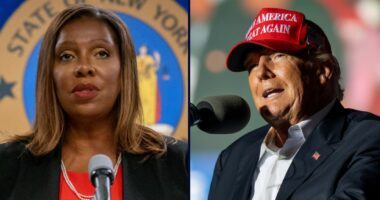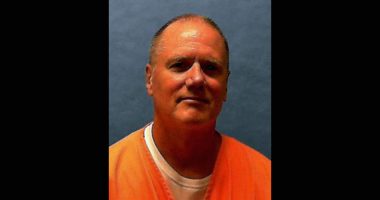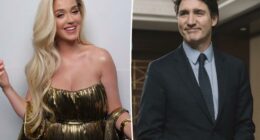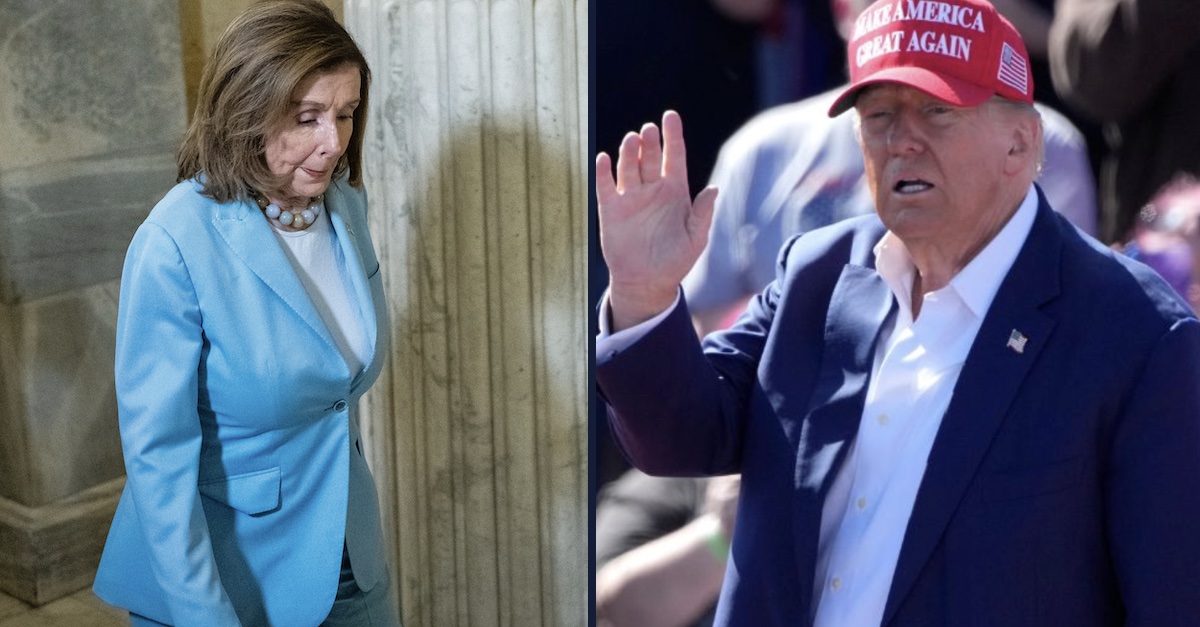
Left: Rep. Nancy Pelosi departs after a meeting with lawmakers and Ukrainian President Zelenskyy, at the U.S. Capitol on September 26, 2024 (Graeme Sloan/Sipa USA)(Sipa via AP Images). Right: Republican presidential nominee former President Donald Trump waves as he departs a campaign event at Central Wisconsin Airport on Sept. 7, 2024, in Mosinee, Wis. (AP Photo/Morry Gash).
After months-long delays and a major Supreme Court ruling, Donald Trump’s Jan. 6 prosecution resumed and the special counsel docketed the most detailed account yet of the government’s theory to comply with the high court’s immunity decision and instructions upon remand. While the former president’s defense continues to seek dismissal on immunity grounds, another SCOTUS Jan. 6-related decision has emerged as a supplemental argument in favor of tossing the case.
In late June, days before the justices ruled in Trump v. United States, SCOTUS also handed down a decision in Fischer v. United States, reining in the DOJ’s application of the obstructing an official proceeding statute and raising questions about the futures of hundreds of such cases. Trump is now citing the Fischer decision to argue that two of his obstruction-related charges in the revised indictment should be dismissed, potentially undermining the rest of the case.
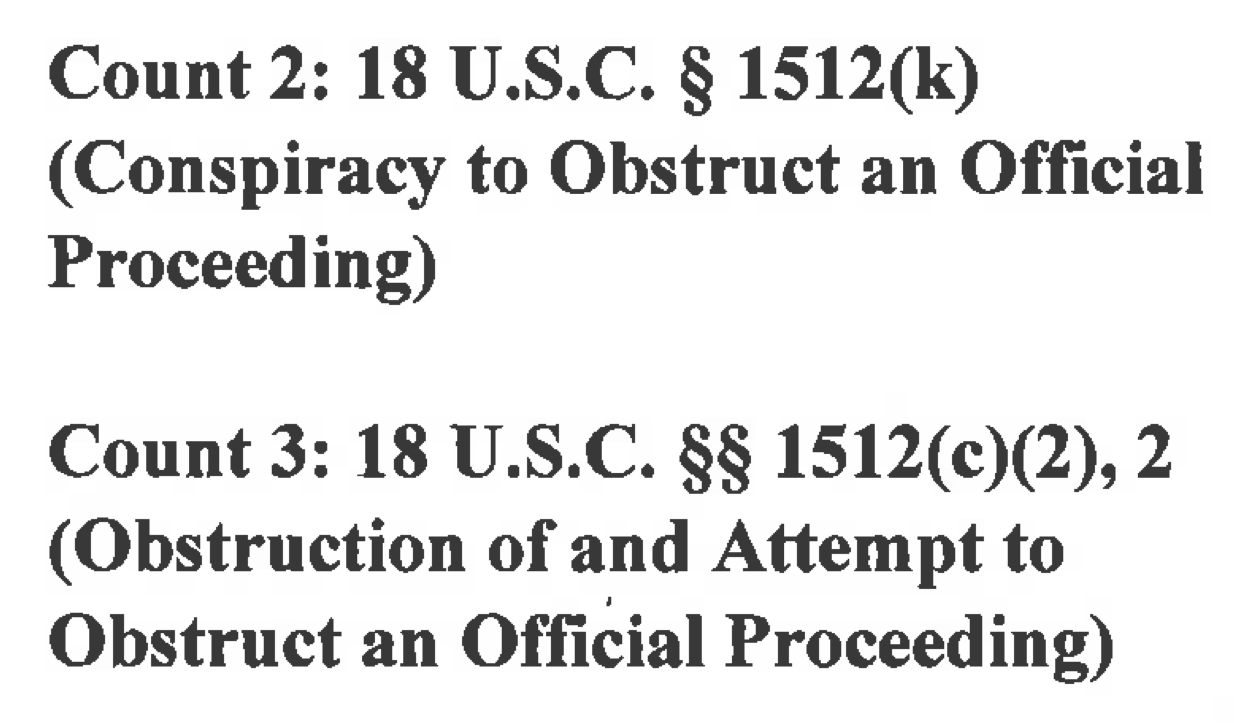
On Thursday, Trump lawyers submitted their supplemental filing to dismiss special counsel Jack Smith’s case, beginning with argument that it’s “false” to say their client is “somehow responsible for events at the Capitol on January 6, 2021” — pointing instead to a House Republican’s press release on Nancy Pelosi, the California Democrat and former longtime Speaker of the House, saying that she took “responsibility.”
“The Special Counsel’s Office seeks to assign blame for events President Trump did not control and took action to protect against. The Special Counsel blatantly ignores the fact that federal prosecutors have taken the opposite position in this District. It is apparently of no consequence, to the Office and those who support their efforts, that former Speaker of the House Nancy Pelosi was caught on a previously undisclosed video accepting ‘responsibility’ for the events at the Capitol,” the filing said. “Even one of the Office’s star witnesses, General Mark Milley, acknowledged long before charges were brought in this case that President Trump had instructed the Defense Department on January 3, 2021 to ‘make sure that you have sufficient National Guard or Soldiers to make sure it’s a safe event.””
From there, the defense turned to the impact of Fischer, asserting that the special counsel “cannot ignore or hide from” this “binding precedent.”
“Fischer requires the dismissal of Counts Two and Three of the Superseding Indictment, and its logic fatally undermines Counts One and Four as well,” the filing said. “Section 1512(c)(2) was enacted in response to corporate document shredding that bears no resemblance to the allegations in the Superseding Indictment. Under Fischer, the Office may not use the statute as a catchall provision to criminalize otherwise-lawful activities selectively mischaracterized as obstructive by those with opposing political views. As Fischer confirms, § 1512(c)(2) requires proof of evidence impairment coupled with corrupt intent.”
At the same time, Trump’s attorneys argued his bid to overturn his 2020 election loss was rooted in “sincere and and valid concerns,” not corruption or evidence tampering:
Under these circumstances, the Special Counsel’s Office cannot establish the required nexus between alleged obstruction and any “evidence” used in the certification proceeding, or that anyone acted with corrupt intent. Fischer forecloses the Office’s efforts to rely on events at the Capitol on January 6 to support charges under § 1512(c), as the Superseding Indictment does not sufficiently allege that President Trump impaired, or intended to impair, the integrity or availability of any document or other object used in any official proceeding. The limiting interpretation that the Fischer Court applied to § 1512(c) also strongly supports President Trump’s narrower interpretation of § 371, as charged in Count One, and § 241, as charged in Count Four. Accordingly, for the reasons set forth below, as well as in the Motion, the Superseding Indictment should be dismissed.
In a parting shot, the defense said the “Biden-Harris DOJ” has been scrambling in the aftermath of the Fischer decision and had no choice but to “abandon” dozens of prosecutions. Trump seeks the same outcome or, in the alternative, a ruling from U.S. District Judge Tanya Chutkan tossing the case.
“Before Fischer was decided, the Biden-Harris DOJ had used § 1512(c)(2) to either charge or convict 259 people relating to events on January 6. DOJ ‘continues to assess’ many of those cases, but has already acknowledged thus far that the decision severely undermined their position in at least 100 of them. Specifically, so far as has been disclosed, the decision forced prosecutors to consent to the dismissal of § 1512(c)(2) convictions in 40 cases that had been adjudicated before the Supreme Court issued Fischer, and to abandon § 1512(c)(2) charges for 60 more of those defendants,” the defense concluded. “President Trump’s case should be among the next to be abandoned and, if not, then it should be dismissed.”
Read the Trump supplemental filing in favor of dismissal here.
Have a tip we should know? [email protected]

